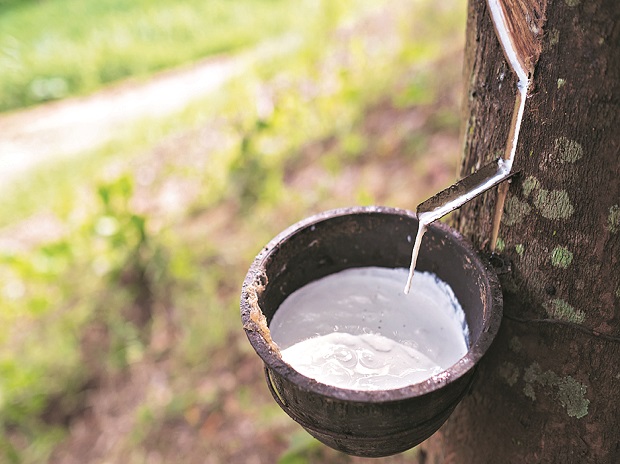Nation Loses Jobs & Revenue As Raw Rubber Is Exported Unprocessed
By Nelson Ayivor
Ghana’s rubber industry is on the brink of collapse, hemorrhaging over $100 million annually due to the country’s over-reliance on exporting raw rubber, a stark warning from the Rubber Processors Association of Ghana has revealed.
The Association’s chairman, Emmanuel Akwasi Owusu, minced no words, lamenting that Ghana is essentially giving away jobs and economic opportunities to foreign nations by failing to add value to its raw rubber.
“Now, because we are cheap in terms of $600 compared to the $800 prices, they can afford to just come and take our raw rubber away. We are giving jobs to people in other countries and collapsing our economy,” Owusu fumed.
He explained that foreign companies are exploiting the nation’s low prices, buying raw rubber at around $600 per metric ton and raking in massive profits after processing it in their home countries, where the processed price can exceed $800.
THE RIPPLE EFFECT
The financial loss, Owusu stressed, is staggering. He revealed that adding value to the raw rubber can increase its price by an additional $900 per metric ton. This means Ghana loses a staggering $100 million every year by failing to process the rubber locally.
“The most serious thing is that every year, if we don’t add value, we are losing $100 million. When you add value to the raw rubber, which is sold at $600, you can then have an additional $900. If you multiply that by our production per year, it is the $100 million. That is the ripple effect we are talking about,” he stated.
Beyond the numbers, the chairman noted that the country is also losing out on thousands of potential jobs that would be created if the rubber was processed locally.
A WAKE-UP CALL
The Association is now sounding the alarm and urging the government to take immediate action. They are calling for stricter enforcement of regulations and the creation of policies that incentivize local processing. The recommendations include tax incentives, access to affordable credit, and strategic partnerships to build modern processing facilities.
Owusu emphasized that the country’s over-reliance on raw exports undermines its broader industrialization agenda. “Every time we export raw materials without adding value, we are exporting jobs, collapsing our industries, and weakening our economy,” he said.
The current crisis, the Association noted, is a reflection of a broader problem affecting Ghana’s natural resource industries, including cocoa and gold, where the nation consistently exports raw materials, benefiting foreign economies while its own struggles to industrialize.
The Association believes that if the government acts decisively, the rubber industry can become a significant contributor to the nation’s economic growth and a pillar of the government’s industrialization vision. Failure to act, however, could spell doom for the sector, with devastating consequences for the Ghanaian economy.


